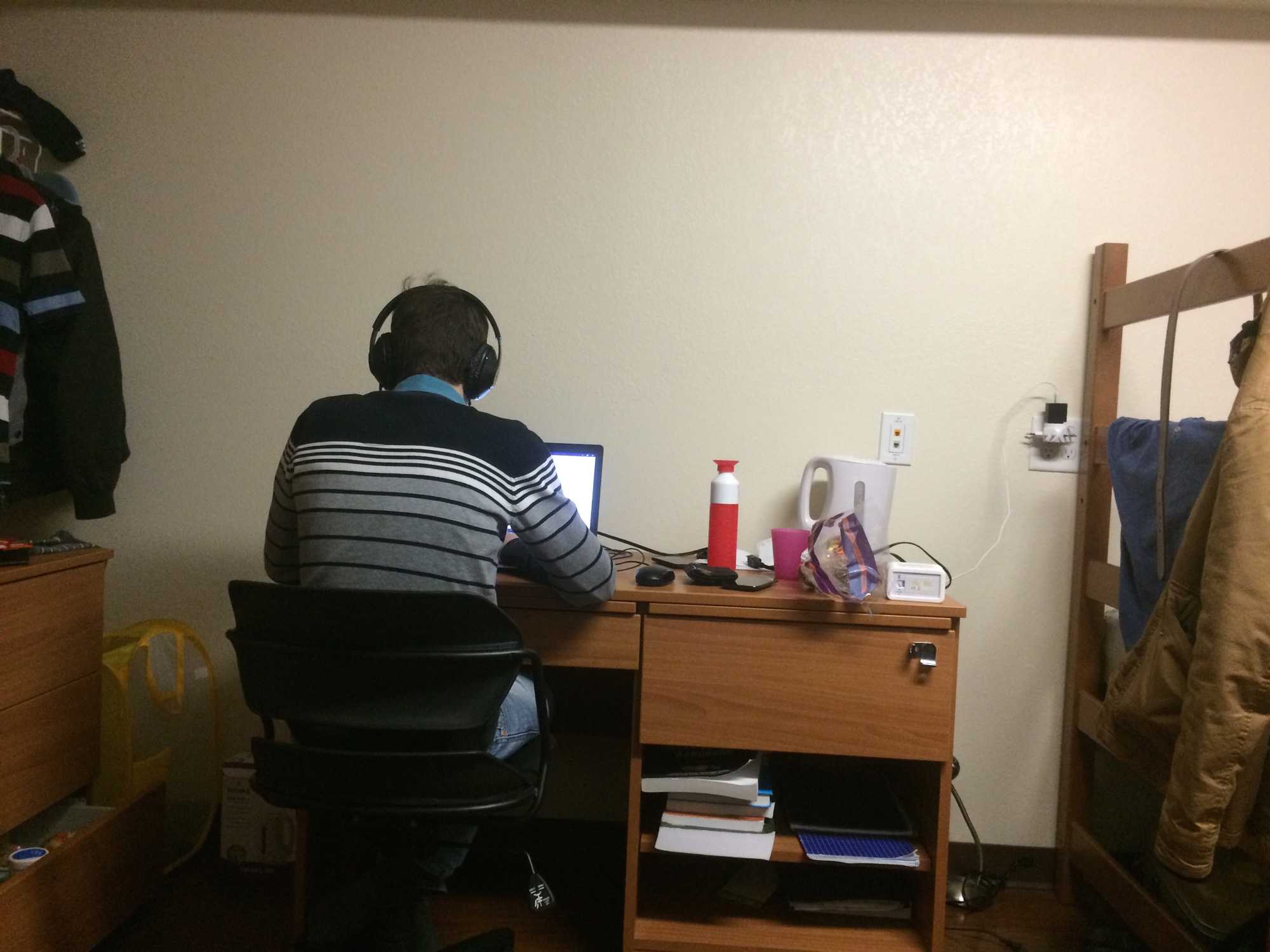For students not used to sleeping during the night, adjusting to college and dorm life can be a bumpy road. Many report fatigue and difficulty keeping up with classes.
“Don’t try out a nocturnal lifestyle if you can help it,” Andrew Mullins, a freshman English major, said. “I think it’s a severe detriment to my life and education. Because being tired throughout the whole day is not conducive to keeping up with my education or keeping friendships alive. All you really want to do during the day is sleep, then you don’t get that much sleep anyway because of your schedule.”
The latest course ASU currently offers is Astronomy, which has a lab that ends at 11:50 p.m. Very few universities offer around the clock classes, with Brown University being a notable exception.
“I was definitely nocturnal before college,” Jason Loy, a freshman applied physics major, said. “What caused it is probably natural insomnia. Over breaks, my sleep schedules are awful. I would normally get up in the afternoon and begin my day going to dinner with family.”
For roommate applications here at ASU, an option is given to select if one tends to go to sleep early or late, though that does not directly encompass those who are nocturnal. Loy and Mullins were lucky to have been assigned a room together as they are both nocturnal.
“I can honestly say I’ve never fallen asleep during class, but I can also say it’s ridiculously hard to keep my eyes open day to day,” Mullins said. “At night, I don’t find myself doing work, I just find myself putting off going to sleep. I just watch videos to try to get me to sleep, thinking it will help.”
Many seek help for this condition through medicine like melatonin, a common hormone taken to regulate sleep and wakefulness.
Alex Howard, director of Wellness and Prevention Services, said he would hesitate to use the term “nocturnal” but his office does often discuss sleep and its relation to well-being with students. It is often a primary factor in performance in academic and extracurricular activities.
Howard cites the American College Health Association in identifying the top factors that negatively impact performance during the year.
“Sleep consistently ranks as one of the top three factors negatively impacting academic performance among college students,” Howard said. “Through conversations with students at Appalachian, we have learned that many students’ sleep quality and quantity is disrupted by nightly Netflix binges, late night socializing with friends and procrastination.”
Mullins said it would be a good step to have more night classes to accommodate students who prefer to work later.
Howard said the lack of sleep is especially highlighted during this time in the semester.
“As we approach the end of the semester many are trying to close out the academic year by finishing major assignments,” Howard said. “I recognize that sleep is often sacrificed in an effort to complete various projects. However, I strongly encourage our students to engage in restful, quality sleep with adequate duration. If one is unable to sleep seven to nine hours at night, find a way to manage a 30-minute nap during the late morning or early afternoon. In addition, if the weekends are slightly less busy, use this time to obtain additional hours of high quality sleep.”
They come out at night
We hope you appreciate this article! Before you move on, our student staff wanted to ask if you would consider supporting The Appalachian's award-winning journalism. We are celebrating our 90th anniversary of The Appalachian in October 2024!
We receive funding from the university, which helps us to compensate our students for the work they do for The Appalachian. However, the bulk of our operational expenses — from printing and website hosting to training and entering our work into competitions — is dependent upon advertising revenue and donations. We cannot exist without the financial and educational support of our fellow departments on campus, our local and regional businesses, and donations of money and time from alumni, parents, subscribers and friends.
Our journalism is produced to serve the public interest, both on campus and within the community. From anywhere in the world, readers can access our paywall-free journalism, through our website, through our email newsletter, and through our social media channels. Our supporters help to keep us editorially independent, user-friendly, and accessible to everyone.
If you can, please consider supporting us with a financial gift from $10. We appreciate your consideration and support of student journalism at Appalachian State University. If you prefer to make a tax-deductible donation, or if you would prefer to make a recurring monthly gift, please give to The Appalachian Student News Fund through the university here: https://www.givecampus.com/campaigns/54088/donations/new?designation_id=faa93386&

